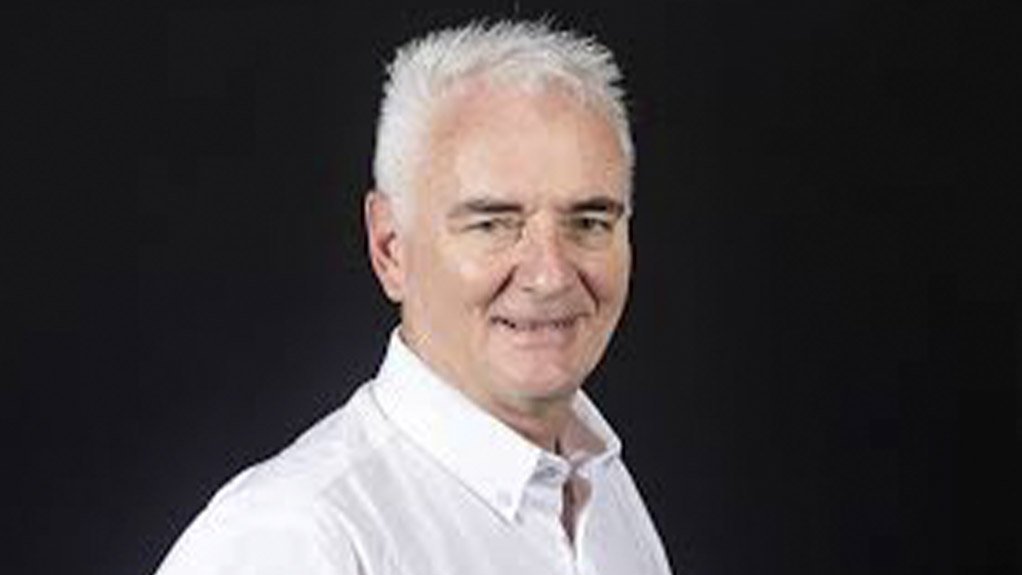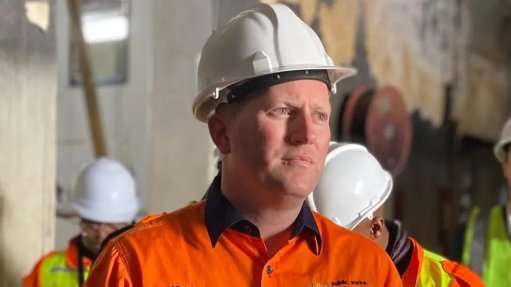True sustainability means the entire food value system going on the offensive in the fight against climate change
This article has been supplied.
By Kevin O’ Brien, Group Sustainability Executive at The SPAR Group
The SPAR Group isn't simply tackling climate change; it’s a strategic imperative for us. However, this battle must become an industry-wide effort with committed levels of collaboration if we are to move the needle. A myopic focus on risk mitigation will not win the war – the entire sector needs to go on the offensive so that true impact is made across the entire value system. Only then can achieving net zero carbon emissions by the sector become a reality.
From our side, The SPAR Group is unwavering in its commitment to reduce our absolute carbon emissions from our operations, but the enormity of the challenge shifts the focus from The SPAR Group to strengthening the collective commitment across the industry, society, economy, and value system. Each one of us has a crucial role to play. We are not under the illusion that we can achieve this alone. Even if we meet our targets, real change will only occur if every person and organisation – and all of society – do their part.
There are far too many headlines about companies managing Scope 1 and 2 emissions in their control and far too little about the need for broader collaboration to drive true sustainability in those areas outside their control. The solution lies beyond dealing with in-house emissions to the real challenge of Scope 3 indirect greenhouse gas emissions, which occur in the upstream and downstream activities of an organization from sources that we do not control or own
To put this into perspective, a new McKinsey analysis of 40 of the world’s largest grocers and their value chains reveals that, on average, Scope 1 and 2 emissions account for only about 7% of the total. Meanwhile, approximately 93% of emissions lie outside grocers’ direct control.
Currently, the food system accounts for more than 30% of global GHG emissions, and while grocers’ direct contribution to these emissions is relatively low, the grocery sector has a unique opportunity to become the driving force for the decarbonisation of the entire food system. Due to our central position in the value chain, we can and must do everything possible to decarbonise the food system - from farmers and suppliers to intermediaries and consumers.
This will not only help us meet our decarbonisation targets but will also support suppliers in their efforts to decarbonise food production and enable consumers to make sustainable choices.
McKinsey's research highlights that one of the biggest challenges is the key role dairy and meat play in the Western diet. These products account for almost half of all product-related Scope 3 emissions. From a value-chain perspective, two-thirds of all Scope 3 emissions occur at the farming and food-processing stages, while one-third occur during consumption, primarily driven by refrigeration, cooking, and waste disposal.
The SPAR Group is tackling these issues on multiple fronts. Our solutions include providing branded and private label offerings, collaborating directly with farmers to support their efforts to reduce emissions in the supply chain, supporting the decarbonisation of supplier operations (including packaging and waste), taking advantage of technology, and raising sustainability awareness so consumers can make healthier, better choices.
To make a real, lasting impact and drive actual change, we need tough conversations and industry-wide collaboration.
The SPAR Group remains active in moves towards developing an industry-wide stakeholder initiative by the Consumer Goods Council of SA’s (CGCSA) to reducing carbon emissions and driving circular economy. The CGCSA has developed a Climate Change & Sustainability Roadmap, the purpose of which is a collective call to action for CGCSA members to respond to current and future climate change, environmental, social and governance (ESG) challenges facing South Africa’s consumer goods sector.
At The SPAR Group, we’ve developed our own strategic climate change roadmap that identifies the areas we should focus on in reducing our greenhouse gas emissions, responding to changing markets, investing in climate resilient operations, facilitating climate resilient supply chains, putting the broader challenge into perspective, and supporting the drive for more climate-resilient retailers in general. Our strategy incorporates considerations that need to be taken into account given the need for a just transition to a better society and business landscape.
The SPAR Group’s Rural Hub programme is an example of an attempt to develop a sustainable food value system. The Rural Hub supports marginal farmers who do not have the scale to supply commercial markets. By doing so, we create sustainable and inclusive agricultural networks in South Africa – a sector with low representation from young and black farmers.
While SPAR remains the Rural Hub farmers’ primary customer, some of their produce is sold to aggregators who then on-sell to other food retailers, and many grow private crops for their communities. It’s a system that works, but the sustainability of the Rural Hub lies in continual system improvement. Here is how we are tackling this, based on the risks and challenges for the sector we have highlighted:
1. It is not a CSI project.
2. It has a purpose: To create sustainable and inclusive agricultural systems in southern Africa.
3. The SPAR Group guarantees a price to the farmers.
4. The SPAR Group does not only sell the product to SPAR stores; it sells to the market and to the opposition.
5. Grant funding is phased out of the business model.
So, while we keep hearing about carbon nett zero by 2050, conversion to renewable energy sources, biodiversity protection, water protection, reduction in food waste, plastic removal, recycling, a circular economy, and other environmental commitments, what are the chances of us really meeting these commitments?
Once again, a single business that believes it will be able to meet the targets it sets while operating independently is living in a dream world. This is why we proactively work with stakeholders to raise awareness about the risks and need for wider solutions, including how policy can be improved to support the needed changes.
No brand, no matter how powerful it may seem can make true impact alone. Pursuing science-based targets in South African business without considering the societal importance of a just transition would lead to another failure. We would emerge from one crisis only to leave more people behind.
It is time for businesses to roll up their collective sleeves and work harder together to get ahead of the climate change curve. If we don’t, future generations will be left picking up the pieces – if indeed there is anything left to salvage.
Article Enquiry
Email Article
Save Article
Feedback
To advertise email advertising@creamermedia.co.za or click here
Announcements
What's On
Subscribe to improve your user experience...
Option 1 (equivalent of R125 a month):
Receive a weekly copy of Creamer Media's Engineering News & Mining Weekly magazine
(print copy for those in South Africa and e-magazine for those outside of South Africa)
Receive daily email newsletters
Access to full search results
Access archive of magazine back copies
Access to Projects in Progress
Access to ONE Research Report of your choice in PDF format
Option 2 (equivalent of R375 a month):
All benefits from Option 1
PLUS
Access to Creamer Media's Research Channel Africa for ALL Research Reports, in PDF format, on various industrial and mining sectors
including Electricity; Water; Energy Transition; Hydrogen; Roads, Rail and Ports; Coal; Gold; Platinum; Battery Metals; etc.
Already a subscriber?
Forgotten your password?
Receive weekly copy of Creamer Media's Engineering News & Mining Weekly magazine (print copy for those in South Africa and e-magazine for those outside of South Africa)
➕
Recieve daily email newsletters
➕
Access to full search results
➕
Access archive of magazine back copies
➕
Access to Projects in Progress
➕
Access to ONE Research Report of your choice in PDF format
RESEARCH CHANNEL AFRICA
R4500 (equivalent of R375 a month)
SUBSCRIBEAll benefits from Option 1
➕
Access to Creamer Media's Research Channel Africa for ALL Research Reports on various industrial and mining sectors, in PDF format, including on:
Electricity
➕
Water
➕
Energy Transition
➕
Hydrogen
➕
Roads, Rail and Ports
➕
Coal
➕
Gold
➕
Platinum
➕
Battery Metals
➕
etc.
Receive all benefits from Option 1 or Option 2 delivered to numerous people at your company
➕
Multiple User names and Passwords for simultaneous log-ins
➕
Intranet integration access to all in your organisation




















